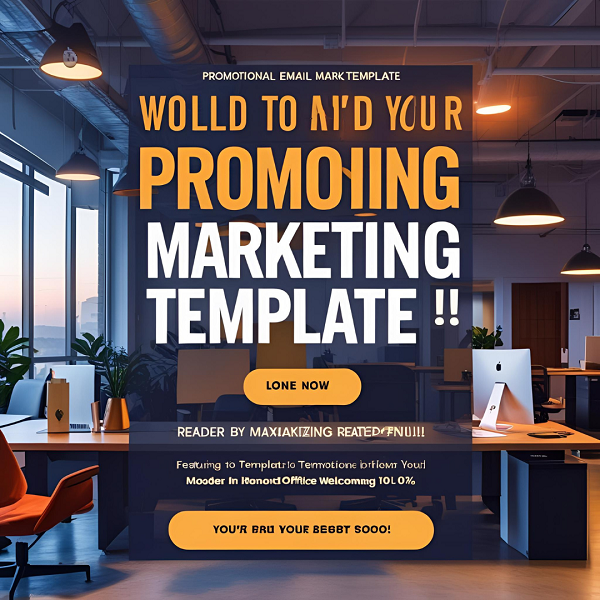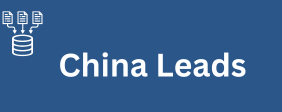Have you ever gotten an email that tells you about a new toy or a special sale? That’s promotional email marketing! It’s when businesses send emails to people. They want to tell you about their cool stuff. They might tell you about a new game. Or they might share a big discount. Businesses use emails to talk to their customers. This helps them sell more things. It also helps people learn about new products. It’s like sending a friendly letter. But it comes straight to your inbox. This helps businesses stay in touch. They can share exciting news. This makes customers happy. People like to know about good deals. They also like new things. So, these emails are very helpful. They make shopping easy. You can see new items quickly. You can also find great prices. Therefore, promotional emails are important. They connect businesses with you.
Why Do Businesses Use Promotional Emails?
Businesses use promotional emails for many reasons. First, they want to tell you about special offers. Maybe there is a big holiday sale. Or a new item just came out. Emails are a fast way to share this news. Second, they can send emails to many people at once. This saves time and money. It is cheaper than sending letters. It is also faster than making phone calls. Third, they can see if people open their emails. They can also see if people click on links. This helps them learn what customers like. They can then send even better emails. Fourth, emails help build a good relationship. When businesses send helpful emails, people trust them. They feel connected to the brand. Finally, emails can lead to sales. When you see a cool new product, you might want to buy it. Promotional emails make this happen.
How Do Businesses Get Your Email Address?
You might wonder how businesses get your phone list. They usually get it when you give it to them. For example, when you buy something online, they might ask for your email. You might sign up for a newsletter. This lets you get updates. Sometimes, you enter a contest. They might ask for your email then too. When you make an account on a website, they ask for it. It is always important to be careful. Only give your email to trusted businesses. They should ask your permission first. This is called “opting in.” It means you agree to get emails. Businesses must follow rules. They cannot just guess your email. They must have your permission. This protects your privacy. It also makes sure you only get emails you want.
Sending the Right Message: Making Emails Great
Sending a good promotional email is an art. First, the subject line must be catchy. It should make you want to open the email. Think of it like a newspaper headline. It needs to be interesting. Second, the email should look nice. It needs clear pictures. The words should be easy to read. Nobody wants a messy email. Third, the message must be clear. What are they promoting? What should you do next? Tell people exactly what to do. Fourth, make it short and sweet. People don’t have all day. They want to get the main idea quickly. Finally, make it personal. Sometimes, emails can say your name. This makes you feel special. Good emails are helpful. They are also enjoyable to read.
What Makes a Good Promotional Email Subject Line?
A good subject line is super important. It is the first thing you see. It decides if you open the email. For example, “Big Sale Inside!” is better than “Our Newsletter.” You can use emojis too. A little smiley face or a star can catch your eye. You can also ask a question. Like, “Ready for New Adventures?” This makes you think. Sometimes, telling people about a deadline works. “Last Chance for 50% Off!” creates urgency. Keep it short. Long subject lines get cut off. Make it specific. Tell people what they will find. A good subject line is like a friendly whisper. It invites you to learn more. It truly makes a big difference.

Tips for Writing Great Email Content
Writing the actual email is key. First, use simple words. Remember, we are writing for everyone. Avoid big, confusing words. Second, use short sentences. They are easier to read. Long sentences make people tired. Third, break up your text. Use small paragraphs. This makes the email look less scary. Fourth, use bullet points. They help highlight important things. It’s like making a list. Fifth, tell a story if you can. People love stories. They remember them better. Sixth, always have a clear call to action. What do you want people to do? Say it clearly. “Shop Now!” or “Learn More Here!” is good. Finally, check for mistakes. No one likes an email with typos. Always read it carefully.
The Journey of a Promotional Email
Imagine a tiny little email. It starts its journey from a nuevomailer: your easy path to email marketing success. First, the business decides what to promote. Maybe it’s a new pair of shoes. Or a special discount on books. Next, they design the email. They choose colors. They write the words. Then, they send it out. It travels very, very fast. It goes through the internet. When you open it, you see the message. You might click on a link. This takes you to their website. There you can learn more. You can even buy the item. The email’s job is done. It connected you to the business. It shared important news. This whole process is like magic. It makes shopping so much easier. It brings new things to you. Therefore, it is a very efficient system.
Personalizing Your Promotional Emails
Making emails personal means making them special for you. Businesses can do this in many ways. First, they can use your name. Instead of “Hello Customer,” they say “Hello [Your Name]!” This feels much friendlier. Second, they can send emails about things you like. If you often buy video games, they send game offers. They don’t send emails about gardening tools. This is because they track what you buy. Or what you look at online. Third, they can celebrate special days. They might send you a birthday discount. Or a happy anniversary message. This makes you feel valued. It shows they care about you. Personalized emails are more fun to get. They are also more useful. You get offers that truly interest you. Therefore, businesses try hard to personalize. It makes their emails better.
Measuring Success: How Do Businesses Know if Emails Work?
Businesses need to know if their list provider are working. How do they find out? They use special tools. First, they check “open rates.” This is how many people open the email. If many people open it, the subject line was good. Second, they check “click-through rates.” This is how many people click on links inside. If many people click, the email content was interesting. Third, they check “conversion rates.” This is how many people actually buy something. Or sign up for something. This is the most important one. It shows if the email made money. They also look at “unsubscribe rates.” This is how many people stop getting emails. If this number is high, something might be wrong. By looking at these numbers, businesses learn. They can then improve their future emails. They aim for high opens. And most importantly, more sales.
Avoiding the Spam Folder: Staying Out of Trouble
Nobody wants their emails to go to the “spam” folder. The spam folder is like a trash can for unwanted emails. Businesses work hard to avoid it. First, they always get permission. They never send emails to people who didn’t ask. This is very important. Second, they don’t use tricky words. Words like “free money” can sound like spam. They use honest language. Third, they make sure their emails are not too big. Emails with huge pictures might get flagged. Fourth, they use reliable email sending services. These services help deliver emails correctly. Fifth, they include an “unsubscribe” link. This lets people easily stop getting emails. If people can easily leave, they won’t mark it as spam. Avoiding spam is crucial. It ensures emails reach the right people. It keeps businesses in good standing.
The Future of Promotional Email Marketing
Email marketing is always changing. What will it be like in the future? We might see even more personalization. Emails could feel like a chat with a friend. They might use more videos. Videos are engaging. People love watching them. Emails might also become more interactive. You could play a mini-game inside the email. Or answer a quick poll. Artificial intelligence (AI) will play a big role. AI can help businesses write better emails. It can also help send them at the best time. Emails will likely be even smarter. They will know exactly what you need. They will be sent at the perfect moment. The goal is to make emails even more helpful. They will be less like ads. They will be more like helpful assistants. It will be an exciting future.
The Importance of Good Design in Emails
Good design is incredibly important for emails. Think of it like a beautifully wrapped present. If it looks good, you want to open it. First, use clear, readable fonts. Small, fancy fonts are hard to read. Second, use good colors. The colors should match the brand. They should also be easy on the eyes. Third, include high-quality images. Blurry pictures look unprofessional. Good pictures grab attention. Fourth, make sure the email looks good on phones. Many people check emails on their phones. If it’s hard to read on a phone, they will close it. Fifth, use white space. Don’t crowd too many things together. White space makes the email look clean. It’s like giving your eyes a rest. Good design makes emails enjoyable. It makes people want to read more. It truly impacts how a message is received.
In conclusion, promotional email marketing is a powerful tool. It helps businesses talk to customers. It brings new products to your attention. When done right, emails are helpful. They are also easy to understand. They must have good subject lines. The content must be clear. Businesses measure their success carefully. They learn what works best. They always ask permission first. The future of email marketing looks bright. It will be even more personal. It will be more interactive. Emails will continue to connect people. They will connect people with their favorite brands. So, next time you see a promotional email, remember its journey. It was sent to help you. It was sent to share something special.
